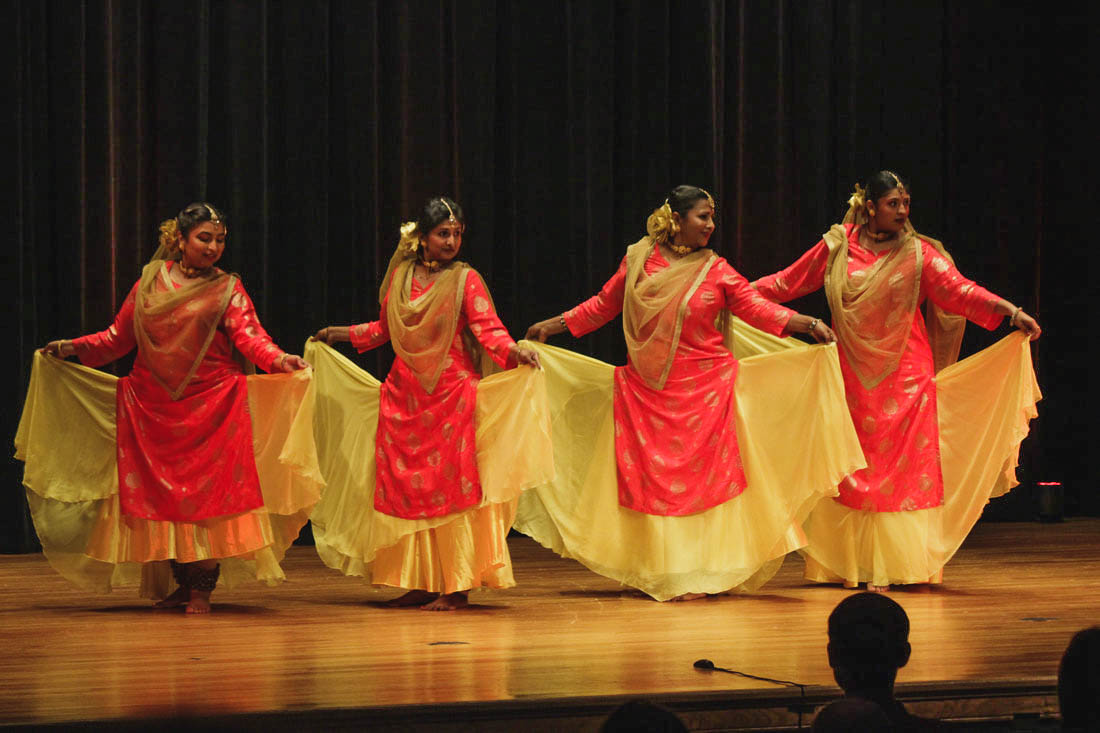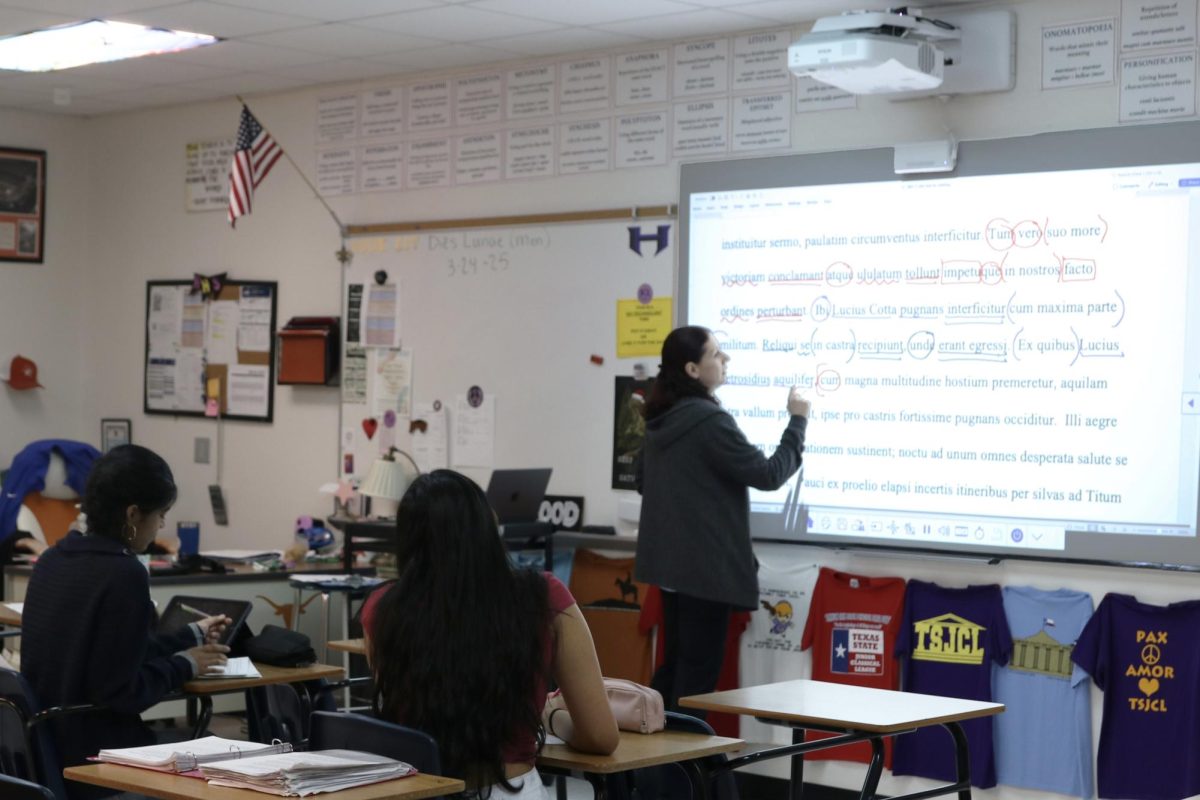As of 2023, Texas is 49th in the country for reproductive and women’s healthcare. In Texas, middle schools are required to teach health and sex education; however, at the high school level, it is offered as an elective and requires signed parent permission. This lack of education and access to healthcare can impact teenage girls in the community.
“We have [a problem with] our educational resources,” physician assistant Alyssa Musaali said. “I know in fifth and sixth grade, they go over the video of how important it is to use menstrual pads and tampons, but it’s not enough. People are not aware of all the different ways to handle a [menstrual] cycle. In the urgent care setting, I get patients coming in just because they don’t know exactly how to use a tampon — it’s a lack of education.”
Senior Aarushi Kodakalla is the president of GirlUp Texas, an organization that fights for equality and rights for women and teenage girls. Kodakalla said one of the biggest issues facing women is the lack of access to affordable resources for menstruation, as well as sexual and reproductive rights. One in five teenagers have struggled to afford menstrual products or not been able to access them at all.
“[People] need to see [menstruation] as not taboo,” Kodakalla said. “It is not gross; it might be uncomfortable for women going through it, but it’s not something that’s so terrible to talk about. It’s not that big of a deal — it’s such a natural process and it’s the start of everything else. People should really understand how cool it is that our bodies can do such a thing and start something new.”
Birth control is a common form of female contraception, but without proper education, some may not know that it also minimizes premenstrual symptoms (PMS), controls acne, regulates menstrual cycles and balances hormones. Of teens surveyed by Scientific American, 82% said that they take birth control for non-contraceptive reasons.
“Patients will come in and ask for birth control, but there’s still a stigma [that assumes] if you’re asking for birth control it’s [because] you are sexually active,” Musaali said. “Because of that, people don’t ask for it. Because of the lack of awareness of how beneficial oral contraception can be, they’re too scared to ask for it. There are teenagers who would want it for the other effects like better skin [and] PMS management. You don’t have to be sexually active to be on birth control — you can be solely taking it for its other benefits.”
A lack of education around birth control can also have consequences for women who are victims of sexual assault, as approximately three million women in the United states have experienced a rape-related pregnancy. A study administered by an organization called Rape, Abuse and Incest National Network (RAINN) shows females between the age of 16 and 19 are four times more likely to be victims of sexual assault over the general population.
“[Sexual assault] happens to teenagers,” counselor Marlene Hood said. “Even if they consent initially, whatever point they say no, no means no. It’s definitely happening, and the numbers are [high enough] to be concerned.”
The Supreme Court overturned Roe v. Wade on June 24, 2022, which left the option of banning abortion up to the states. In Texas, medical and procedural abortions are completely banned. People who receive abortions cannot be prosecuted under state law, but doctors who perform abortions can face life in prison and up to $100,000 in fines. Musaali said that it’s hard being a health provider in Texas without the ability to refer patients to seek abortions.
“I would push for more birth control and contraception use if I know that they’re not at the moment trying to have a baby,” Musaali said. “But, because of the lack of knowledge about contraception, [there is a risk of] unwanted pregnancies. And in Texas, it’s hard to come up with exactly what to do with that. So I feel like, because of this new turnover in Roe v. Wade, the push for being on oral contraceptives has definitely gone up.”
Organizations such as GirlUp and Period Pact Texas assist in the education of teenage girls on their reproductive health and spread awareness by providing resources readily available to young women.
“Advocating helps,” Kodakalla said. “Speaking up about [women’s health rights], [asking] people with power to help push certain curriculums and letting people know that there are programs, resources and websites [available to them can help]. Everyone goes through the same thing, and you’re not alone in that process.”

















